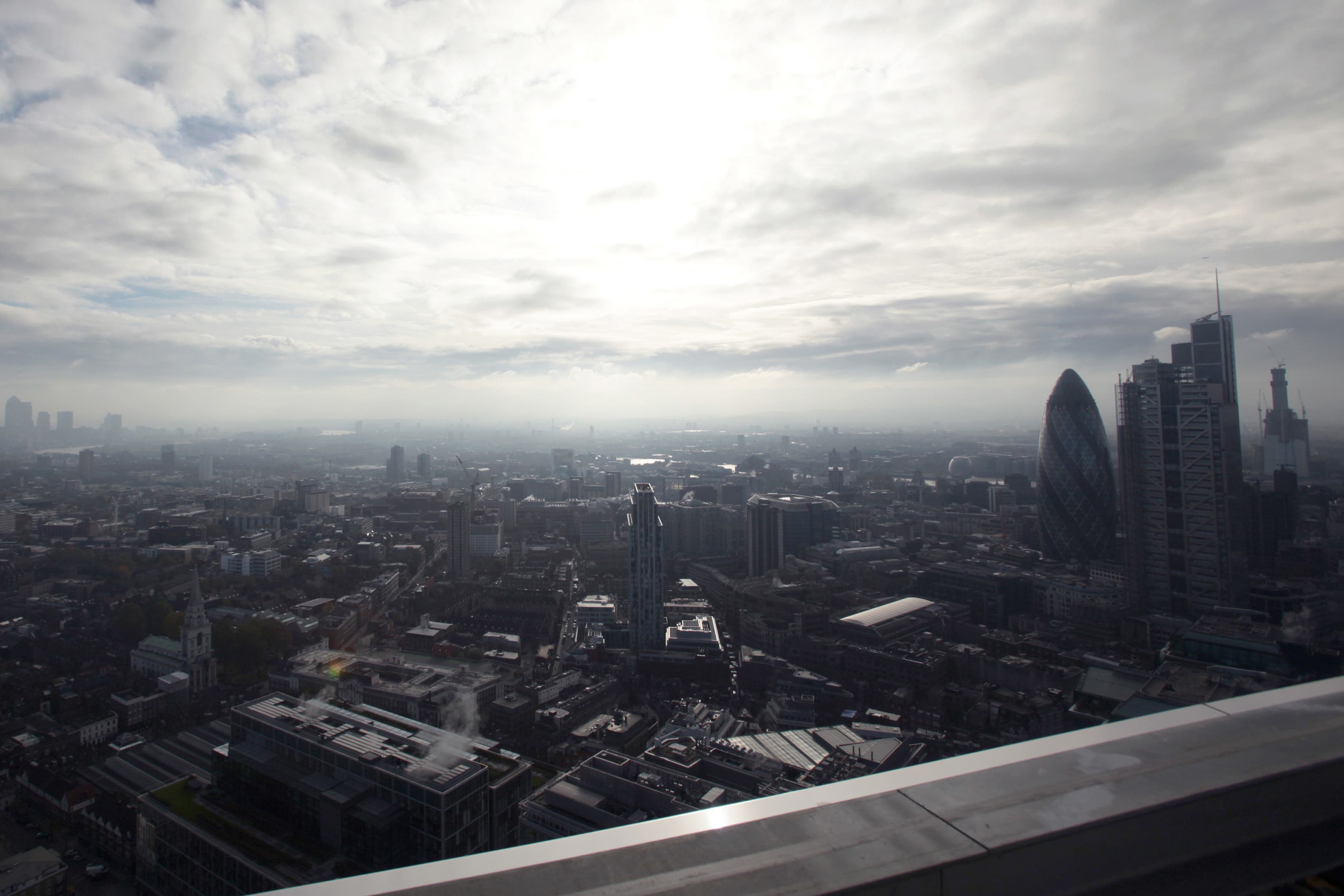FTSE 100 falls back from record high after Bank economist’s rate cut comments
The Bank of England’s chief economist Huw Pill hinted that rate cuts may not come immediately, helping cool the market after a record intraday high.

Your support helps us to tell the story
From reproductive rights to climate change to Big Tech, The Independent is on the ground when the story is developing. Whether it's investigating the financials of Elon Musk's pro-Trump PAC or producing our latest documentary, 'The A Word', which shines a light on the American women fighting for reproductive rights, we know how important it is to parse out the facts from the messaging.
At such a critical moment in US history, we need reporters on the ground. Your donation allows us to keep sending journalists to speak to both sides of the story.
The Independent is trusted by Americans across the entire political spectrum. And unlike many other quality news outlets, we choose not to lock Americans out of our reporting and analysis with paywalls. We believe quality journalism should be available to everyone, paid for by those who can afford it.
Your support makes all the difference.The UK’s top stock market index retreated after setting a record high on Tuesday, amid a dampening of hopes that the Bank of England will cut interest rates imminently.
The FTSE 100 peaked at 8,076.52 points earlier in the day.
A weaker pound plus hopes of easing tensions in the Middle East helped drive the blue-chip index to its new all-time high intraday price.
BoE chief economist Huw Pill will take the blame for the weakness this afternoon, as he warned investors not to hope for rate cuts too soon, but the medium-term outlook for UK stocks continues to look brighter
It closed up 0.26% at 8,044.81 points at the end of trading on Tuesday.
The index fell back after a hint from the Bank’s chief economist that rate cuts may be further off than some analysts had initially hoped.
Speaking in London, Huw Pill said that while rate cuts are “somewhat closer” than last month, the economic outlook “has not changed substantially”.
He also warned that there are still risks if policymakers reduce rates too early.
The Bank’s Monetary Policy Committee, which decides on interest rates, makes its next decision on May 9.
Chris Beauchamp, chief market analyst at online trading platform IG, said: “After yesterday’s strong session the FTSE 100 might have been forgiven for running into some early selling.
“But the index was able to hit a new peak before succumbing to some profit-taking in the afternoon session, though it remains up on the day overall.
“BoE chief economist Huw Pill will take the blame for the weakness this afternoon, as he warned investors not to hope for rate cuts too soon, but the medium-term outlook for UK stocks continues to look brighter.”
A weakened sterling helped push the exporter-heavy FTSE 100 to its new high in the morning, but the currency rose over the course of the day.
The pound was up 0.66% at 1.243 US dollars at the close and was 0.29% higher at 1.162 euros at market close in London.
Europe’s other major markets made modest gains. The German Dax index was up 1.58% at the close and the Cac 40 in France closed up 0.87%.
Primark owner Associated British Foods was the FTSE’s top riser after profits jumped more than a third at its half-year results.
Shares in the group, which also owns food brands Ovaltine and Ryvita, rose 9% to 2,731p after it posted a 37% increase in pre-tax profit to £881 million for the year ending March 2.
Meanwhile, JD Sports Fashion’s stock jumped 3.76% to 122.9p after it agreed a 1.08 billion US dollar (£878 million) deal to buy American sportswear retailer Hibbett as it pushes further into the US.
JD Sports said it would pay 87.5 US dollars (£70.90) a share for Hibbett in cash, with aims for the acquisition to give it a stronger foothold in the all-important American market.
The price of oil rebounded from its multi-day fall, which had been driven by an apparent easing of tensions in the Middle East, as traders weighed the potential for more supply disruptions in the coming months.
A barrel of Brent crude oil was up by 0.66% to 87.62 US dollars as markets were closing in London.
The biggest risers on the FTSE 100 were AB Foods, up 225p to 2,731p, Ocado, up 19.4p to 377.8p, JD Sports, up 4.45p to 122.9p, St James’s Place, up 12.8p to 444.2p, and Ashtead, up 162p to 5,724p.
The biggest fallers on the FTSE 100 were Smurfit Kappa, down 84p to 3,466p, Anglo American, down 49p to 2,111p, Antofagasta, down 46p to 2,155p, Mondi, down 26.5p to 1,500p, and Croda, down 85p to 4,888p.